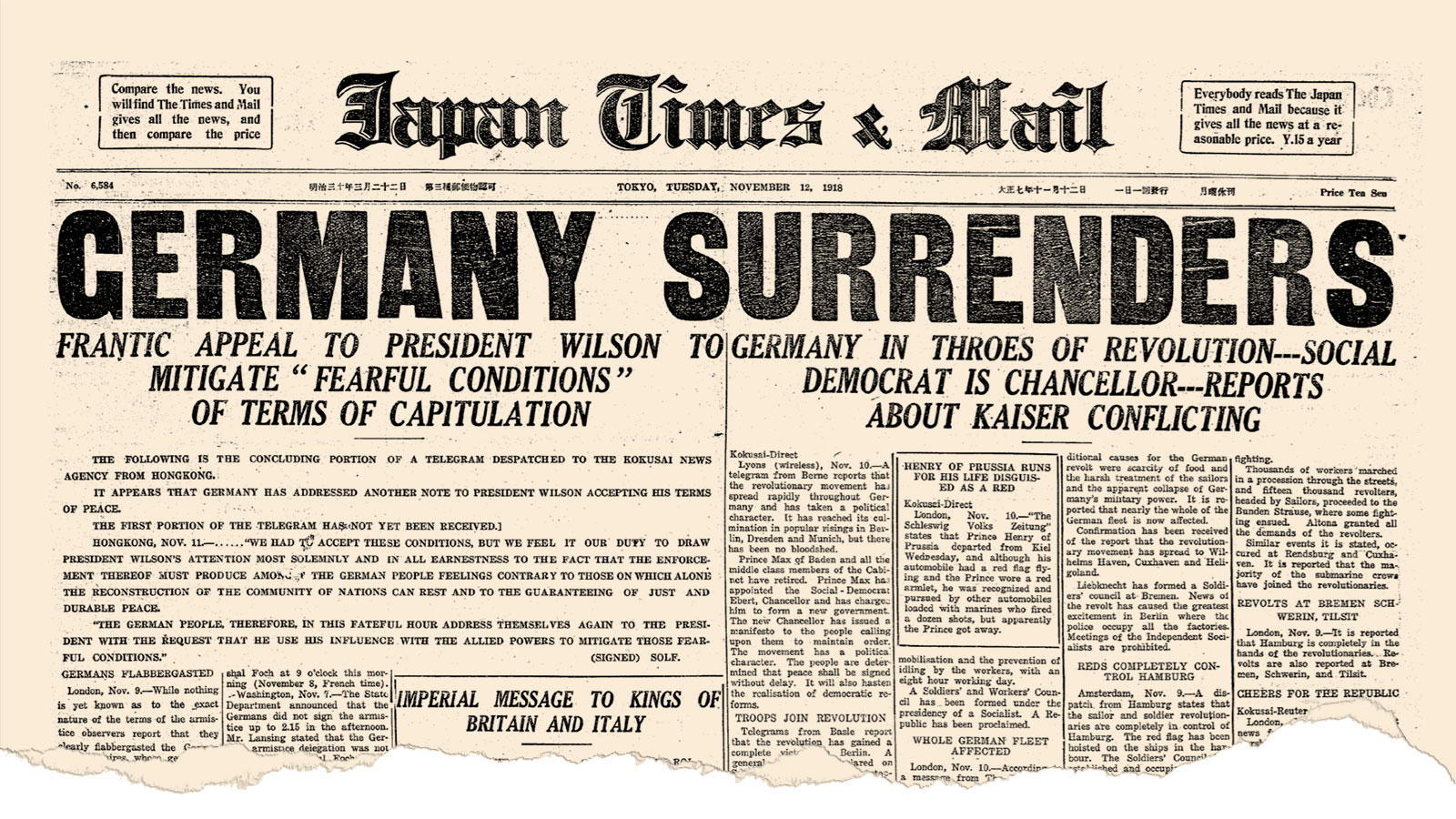At 11 a.m., Nov. 11, 1918, the guns along the Western Front in France and Belgium fell silent. World War I, known at the time as the "Great War," was at an end. What began in August 1914 as a conflict among the European powers that was widely predicted to be over by Christmas had exploded into the largest and bloodiest international conflict in history, involving dozens of countries from all corners of the globe. The hostilities involved Japan, which fought on the side of Great Britain, Canada, France, Belgium, Russia, Australia, New Zealand, the United States and a handful of other countries against Germany, the Austro-Hungarian Empire, Turkey and Bulgaria.
Historians generally agree that somewhere around 9 million military personnel perished in the war and another 22 million were wounded. It's believed that more than 9 million civilians also died in the conflict. The war profoundly influenced everything that followed it in the 20th century, including World War II and the resulting Cold War.
A century later, Nov. 11 continues to be known as Remembrance Day, or Veterans Day in the United States. Today, as solemn official ceremonies to mark the 100th anniversary take place in many parts of the world, we look back at Japan's role in the war and how that role shaped the country domestically and on the international stage.


















With your current subscription plan you can comment on stories. However, before writing your first comment, please create a display name in the Profile section of your subscriber account page.